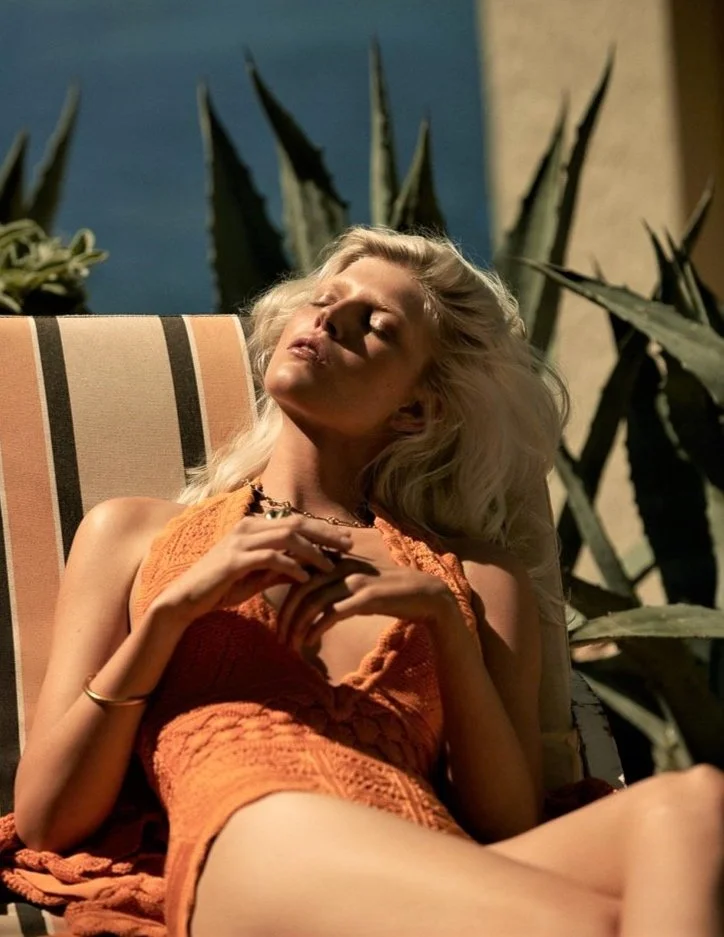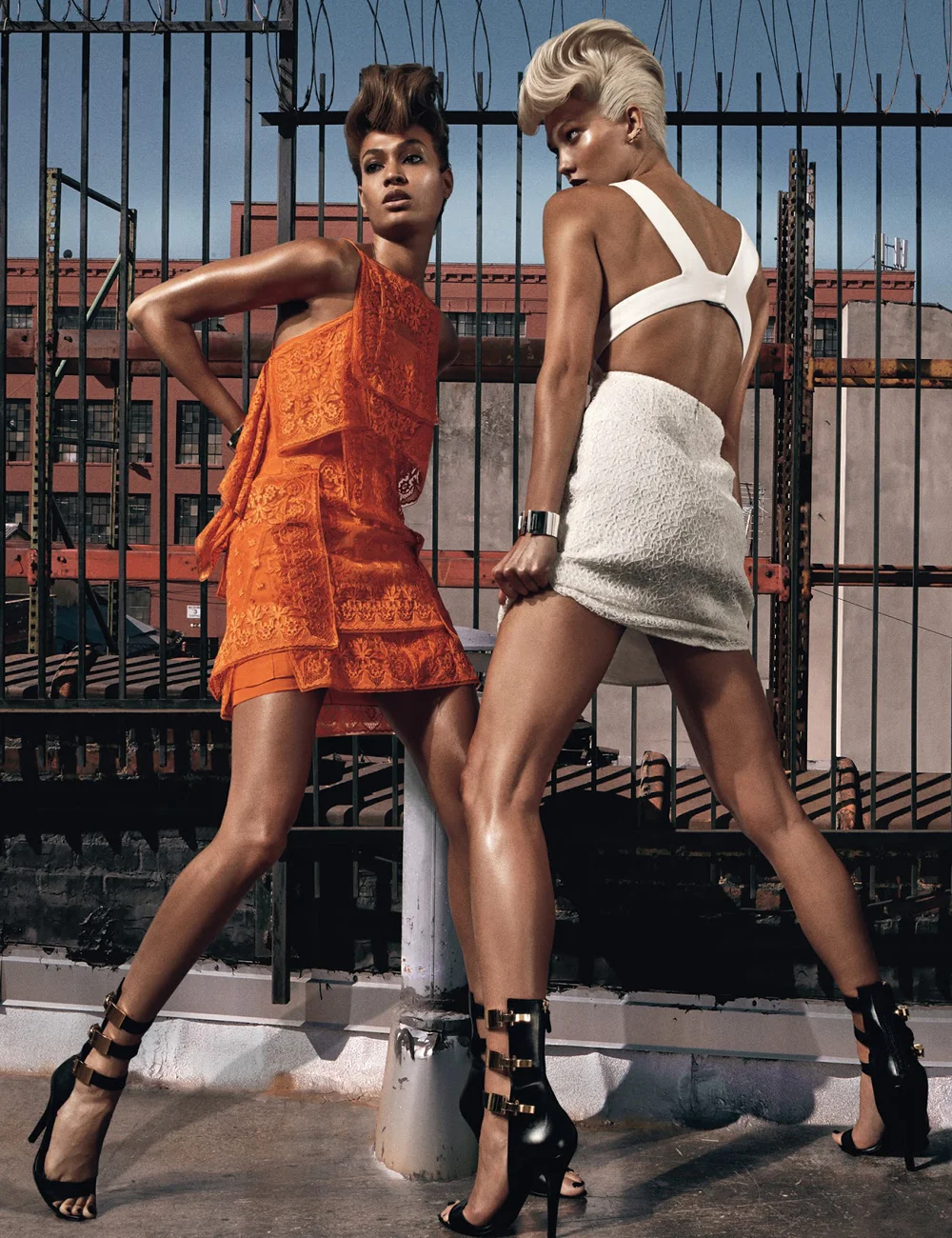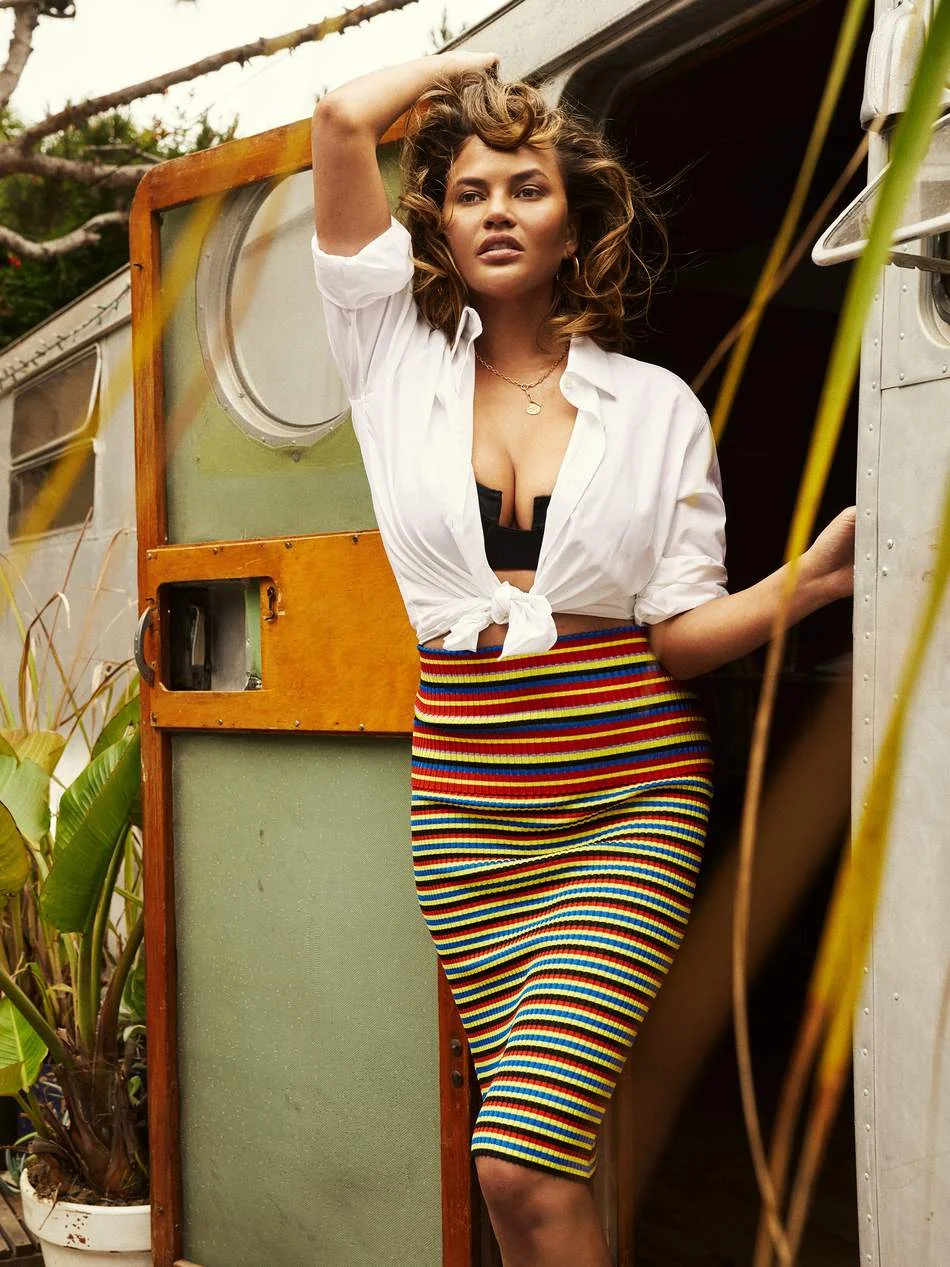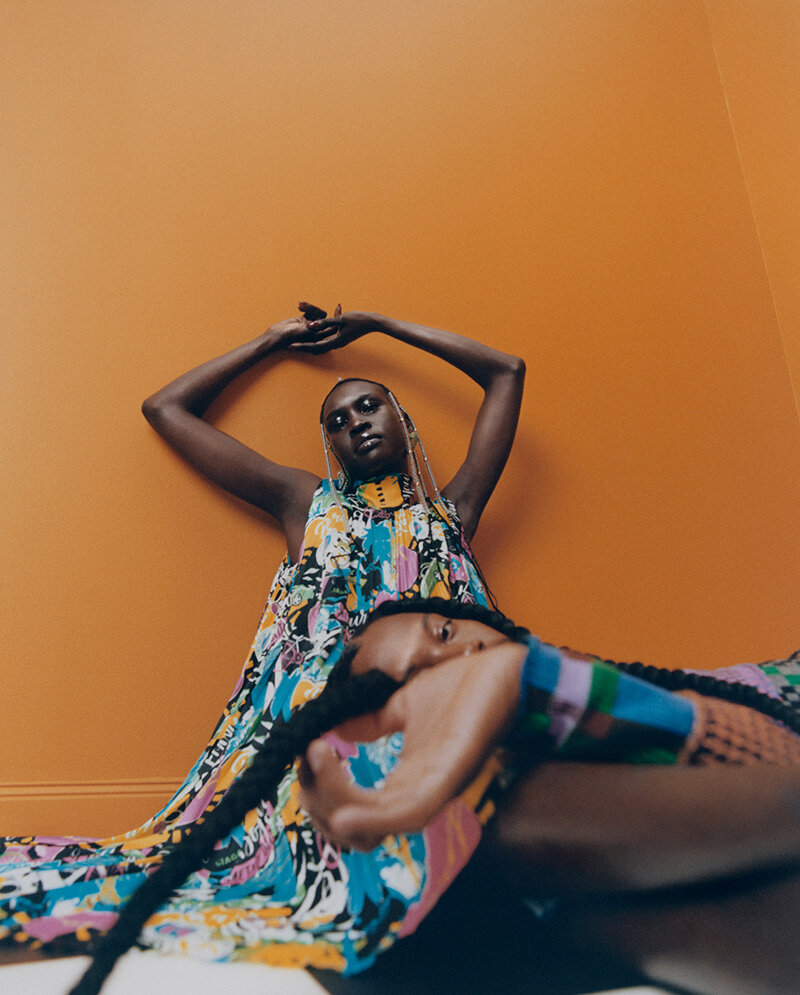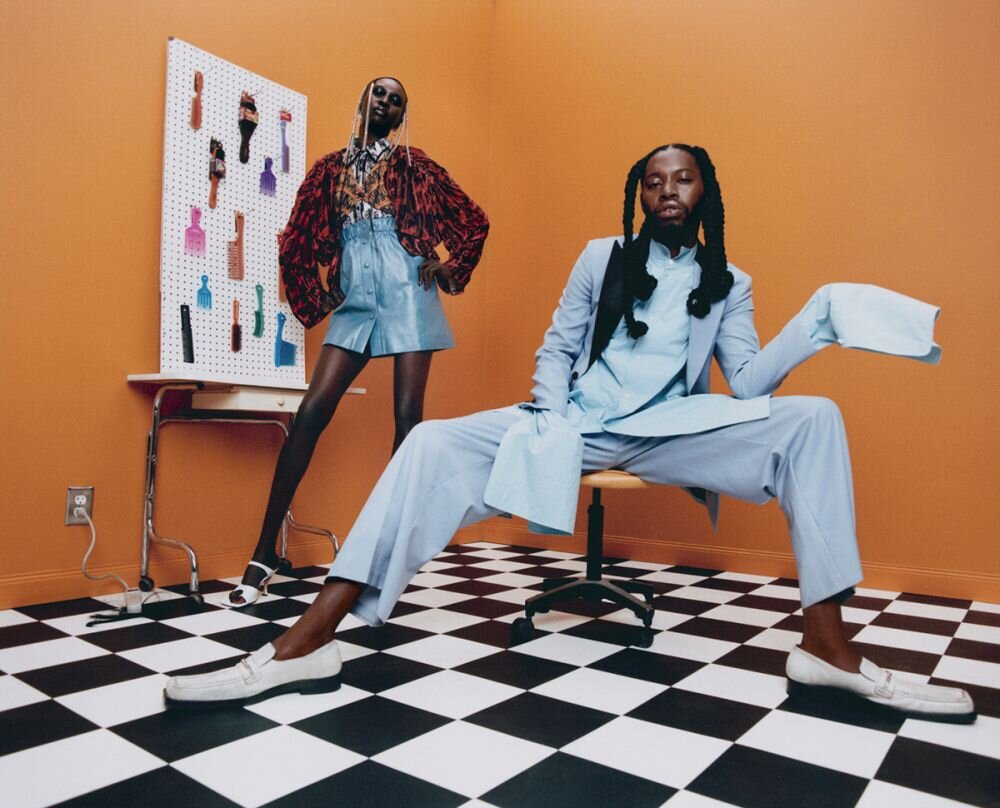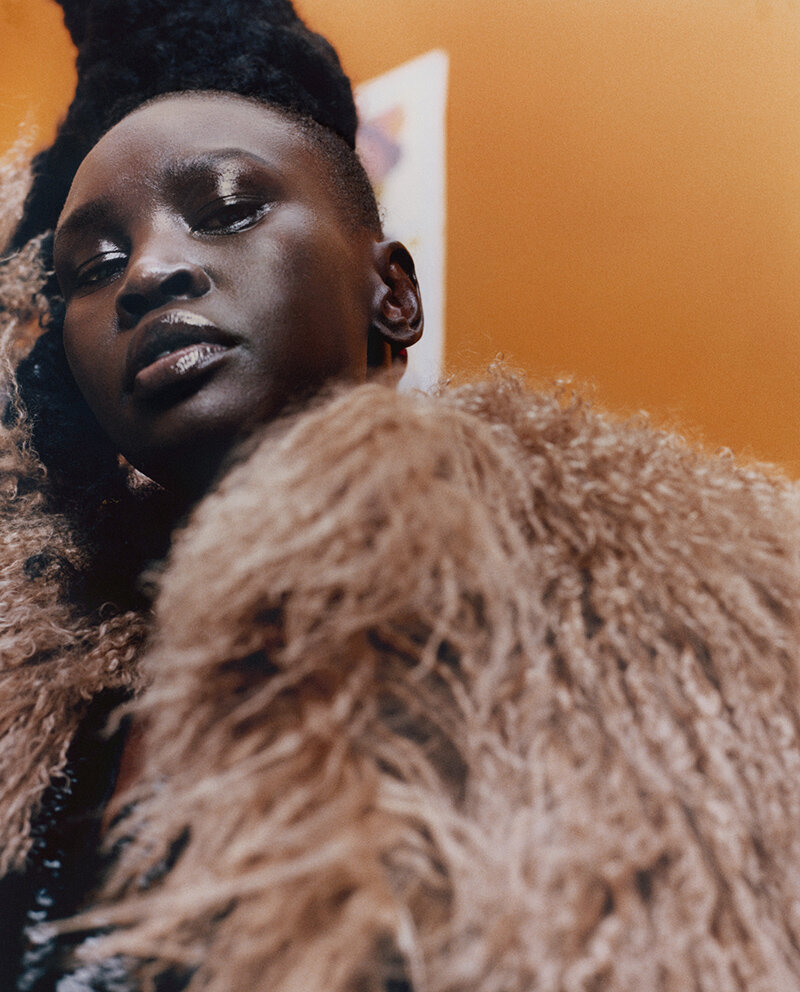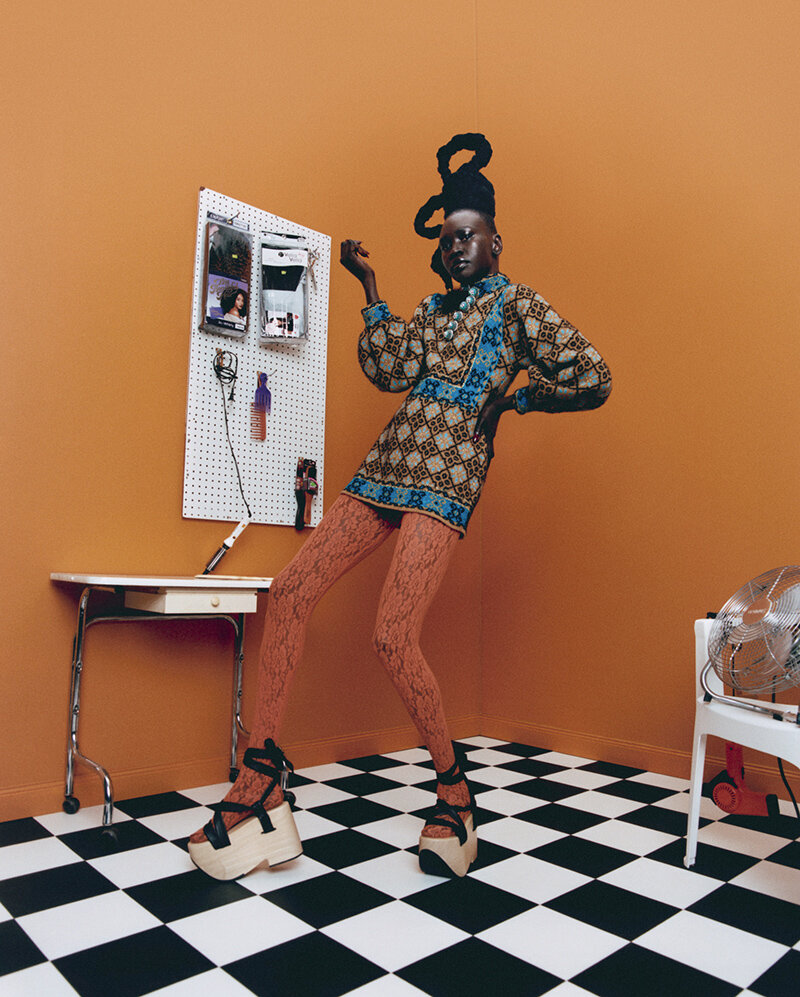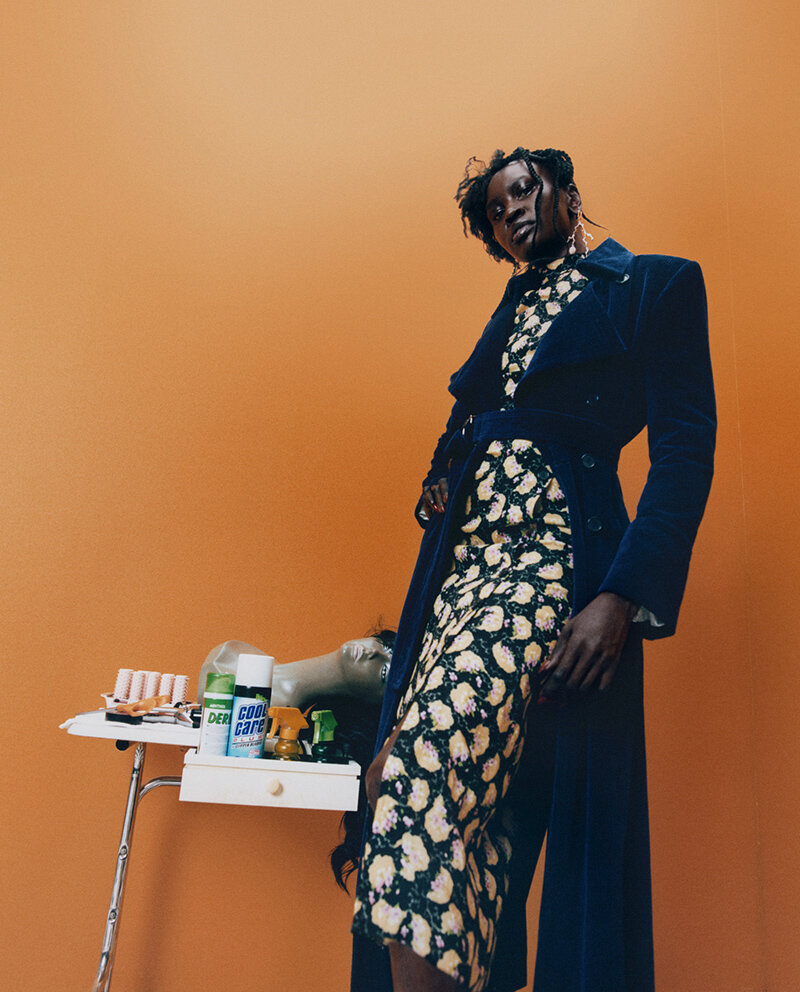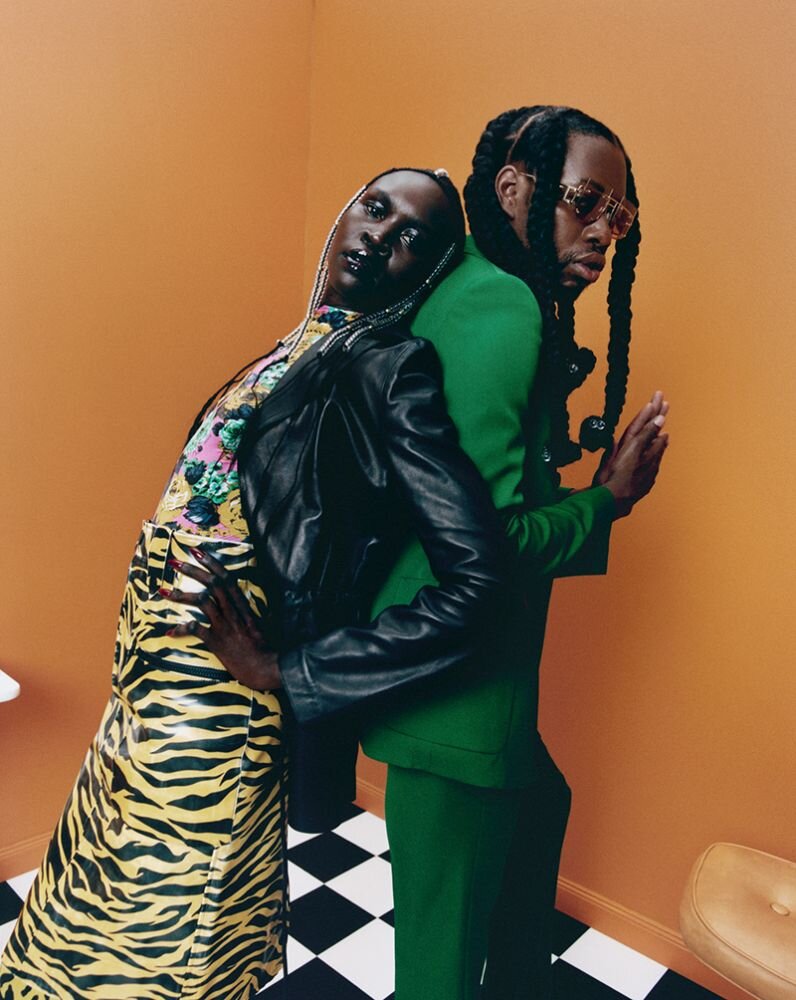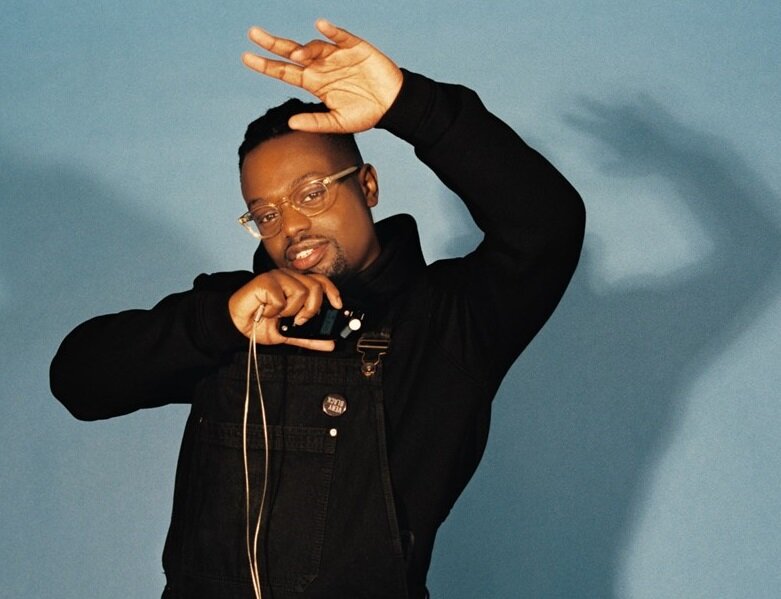Alek Wek + Jeremy O. Harris in 'Tender Head' by Campbell Addy for Interview Magazine
/IMG model Alek Wek and playwright Jeremy O. Harris star in ‘Tender Head’, an original short story by Harris and fashion editorial for Interview Magazine, published online October 4, 2019. Gabriella Karefa-Johnson styles the duo for images by Campbell Addy. / Makeup by Raisa Flowers; hair by Susy; set design Michael Younker.
AOC last encountered Jeremy O. Harris in his New York Times interview with Rihanna, after her new partnership with LVMH was announced.
Harris’ words and tight, poignant prose in ‘Tender Head’ are emotionally and psychologically gripping, as he writes from the interior perspective of the experience. Known for his work on ‘Daddy’ and now ‘Slave Play’, Jeremy O. Harris was the winner of the 2018 Paula Vogel Playwriting Award, given by the Vineyard Theatre in New York City.
Broadway.com, hardly known for featuring insightful commentary on plays, shares a gripping commentary written by Beth Stevens about ‘Slave Play’.
At the packed invited dress rehearsal of Jeremy O. Harris’ daring Slave Play, director Robert O’Hara addressed the crowd as he stood on stage beside the playwright. “If you come expecting comfort, you may not have it,” O’Hara boomed. “I will not give it to you.” If the audience squirmed a bit, it would not be the last time that evening. There is plenty of discomfort to be had in Harris’ controversial Broadway debut play, which addresses inherited psycho-sexual dynamics and racial trauma for three couples as played out in what is billed as an “antebellum fever dream.” Even the play’s title is uncomfortable.
Harris’ ‘Tender Head’ is so moving that I must call up a Nina Simone moment — remixed in modern, sound in 2013 by Sony. For our young people, if you haven’t heard this powerful 1969 anthem to black beauty, creativity and talent, listen in to Nina Simone’s ‘Young, Gifted and Black’.
The sadness lies in this epic song being almost five decades old, playing at a moment where Atatiana Jefferson lies stone, cold dead in Fort Worth, Texas, reminding us of how far we haven’t come from these Nina Simone days. The only small sign of civic improvement in racial justice in America is that the white officer Aaron Y. Dean has been charged with her murder in a rare act of immediate, professional and by-the-book police department leadership.
Campbell Addy’s fab images of Harris and Alex Wek give major credence to the words of Nina Simone’s ‘Young, Gifted and Black’, while Harris’ ‘Tender Head’ frames the moment in today’s life in America.
So shut down your damn i-Phone, forget your Twitter feed for five minutes, take a deep inhale and read the rest of the simple’ loving Tender Heads: Although I’m tempted to publish the entire short read as a public service announcement, Interview deserves your presence.



